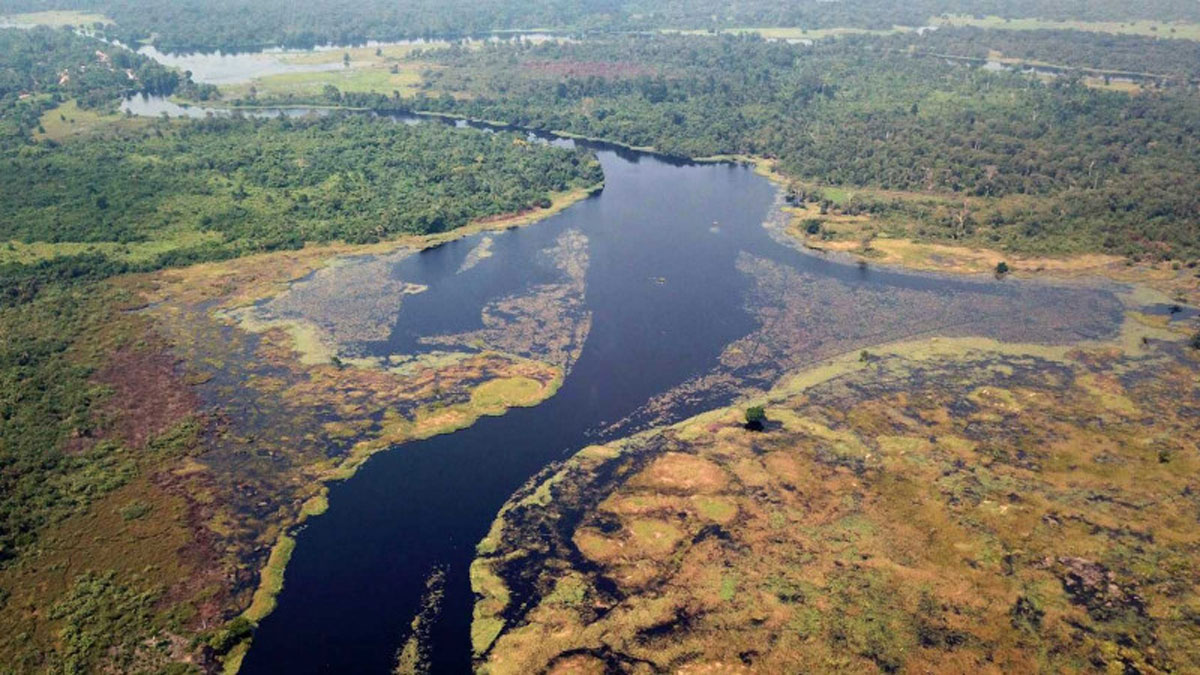An international team of scientists conducted a study and found that the Ruki River in Congo is one of the darkest rivers on our planet. The results of the study were published in the journal Limnology and Oceanography.
The Ruki River is a left tributary of the Congo River (the deepest and second longest river in Africa). Its watershed covers about 14 million square kilometers.
As the authors of the study note, the water in it turned out to be very dark – it is impossible to see the hand, even bringing it close to the face underwater. As shown by comparative analysis with other large tropical rivers, the Ruca is much darker than the famous Rio Negro in the Amazon.
Scientists suggest that the Ruki may be the darkest river in the world. In their opinion, the reason for the phenomenon is that the local water contains a large amount of dissolved organic substances and practically does not contain sediment due to the low slope of the river. Carbon-rich substances are washed into the river by rain. In other words, precipitation washes the remains of dead animals and plants from the forests, and wastewater carries them into the river.
In addition, during the rainy season, Ruki overflows and overflows its banks. For several weeks, the water stands in the forests, again washing away organic remains, and then the river gradually returns to its usual course. “The Ruki River is essentially jungle tea,” said study co-author Travis Drake.
The scientist also notes the fact that this river is unique in its completeness. Its drainage basin is four times the area of, for example, Switzerland. Surprisingly, it is still covered in intact primary lowland rainforest. In addition, along the river, there are large peat bogs containing a huge amount of undecomposed dead plant material, which probably also affects the color of the water.

